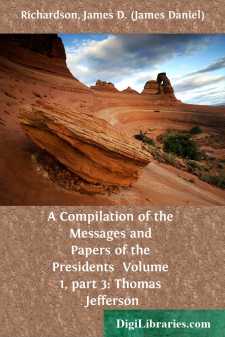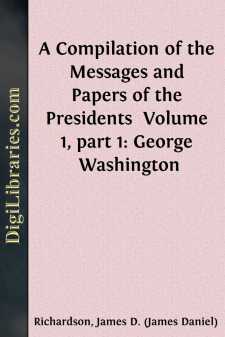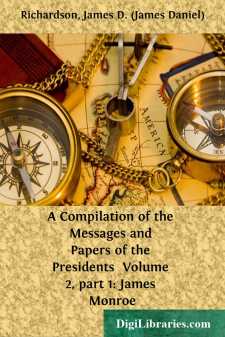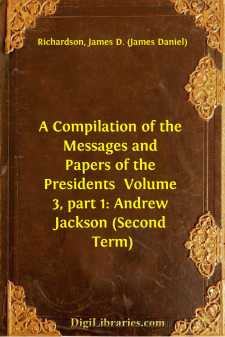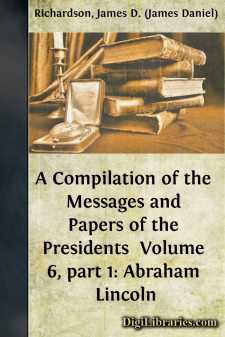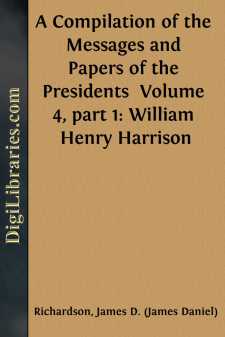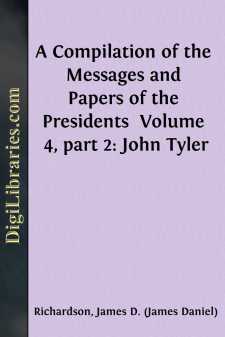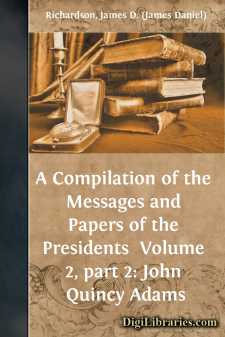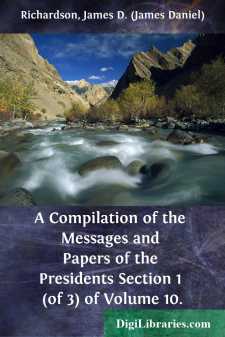Categories
- Antiques & Collectibles 13
- Architecture 36
- Art 48
- Bibles 22
- Biography & Autobiography 813
- Body, Mind & Spirit 142
- Business & Economics 28
- Children's Books 15
- Children's Fiction 12
- Computers 4
- Cooking 94
- Crafts & Hobbies 4
- Drama 346
- Education 46
- Family & Relationships 57
- Fiction 11828
- Games 19
- Gardening 17
- Health & Fitness 34
- History 1377
- House & Home 1
- Humor 147
- Juvenile Fiction 1873
- Juvenile Nonfiction 202
- Language Arts & Disciplines 88
- Law 16
- Literary Collections 686
- Literary Criticism 179
- Mathematics 13
- Medical 41
- Music 40
- Nature 179
- Non-Classifiable 1768
- Performing Arts 7
- Periodicals 1453
- Philosophy 64
- Photography 2
- Poetry 896
- Political Science 203
- Psychology 42
- Reference 154
- Religion 513
- Science 126
- Self-Help 84
- Social Science 81
- Sports & Recreation 34
- Study Aids 3
- Technology & Engineering 59
- Transportation 23
- Travel 463
- True Crime 29
A Compilation of the Messages and Papers of the Presidents Volume 1, part 3: Thomas Jefferson
Categories:
Description:
Excerpt
Thomas Jefferson
Thomas Jefferson was born at Shadwell, Albemarle County, Va., on April 2 (old style), 1743. He was the oldest son of Peter Jefferson, who died in 1757. After attending private schools, he entered William and Mary College in 1760. In 1767 began the practice of the law. In 1769 was chosen to represent his county in the Virginia house of burgesses, a station he continued to fill up to the period of the Revolution. He married Mrs. Martha Skelton in 1772, she being a daughter of John Wayles, an eminent lawyer of Virginia. On March 12, 1773, was chosen a member of the first committee of correspondence established by the Colonial legislature. Was elected a delegate to the Continental Congress in 1775; was placed on the Committee of Five to prepare the Declaration of Independence, and at the request of that committee he drafted the Declaration, which, with slight amendments, was adopted July 4, 1776. Resigned his seat in Congress and occupied one in the Virginia legislature in October, 1776. Was elected governor of Virginia by the legislature on June 1, 1779, to succeed Patrick Henry. Retired to private life at the end of his term as governor, but was the same year elected again to the legislature. Was appointed commissioner with others to negotiate treaties with France in 1776, but declined. In 1782 he was appointed by Congress minister plenipotentiary to act with others in Europe in negotiating a treaty of peace with Great Britain. Was again elected a Delegate to Congress in 1783, and as a member of that body he advocated and had adopted the dollar as the unit and the present system of coins and decimals. In May, 1784, was appointed minister plenipotentiary to Europe to assist John Adams and Benjamin Franklin in negotiating treaties of commerce. In March, 1785, was appointed by Congress minister at the French Court to succeed Dr. Franklin, and remained in France until September, 1789. On his arrival at Norfolk, November 23, 1789, received a letter from Washington offering him the appointment of Secretary of State in his Cabinet. Accepted and became the first Secretary of State under the Constitution. December 31, 1793, resigned his place in the Cabinet and retired to private life at his home. In 1796 was brought forward by his friends as a candidate for President, but Mr. Adams, receiving the highest number of votes, was elected President, and Jefferson became Vice-President for four years from March 4, 1797. In 1800 was again voted for by his party for President. He and Mr. Burr received an equal number of electoral votes, and under the Constitution the House of Representatives was called upon to elect. Mr. Jefferson was chosen on the thirty-sixth ballot. Was reelected in 1804, and retired finally from public life March 4, 1809. He died on the 4th day of July, 1826, and was buried at Monticello, Va.
Mr. Pinckney, from the committee instructed on the 18th instant to wait on the President elect to notify him of his election, reported that the committee had, according to order, performed that service, and addressed the President elect in the following words, to wit:
The committee beg leave to express their wishes for the prosperity of your Administration and their sincere desire that it may promote your own happiness and the welfare of our country....


